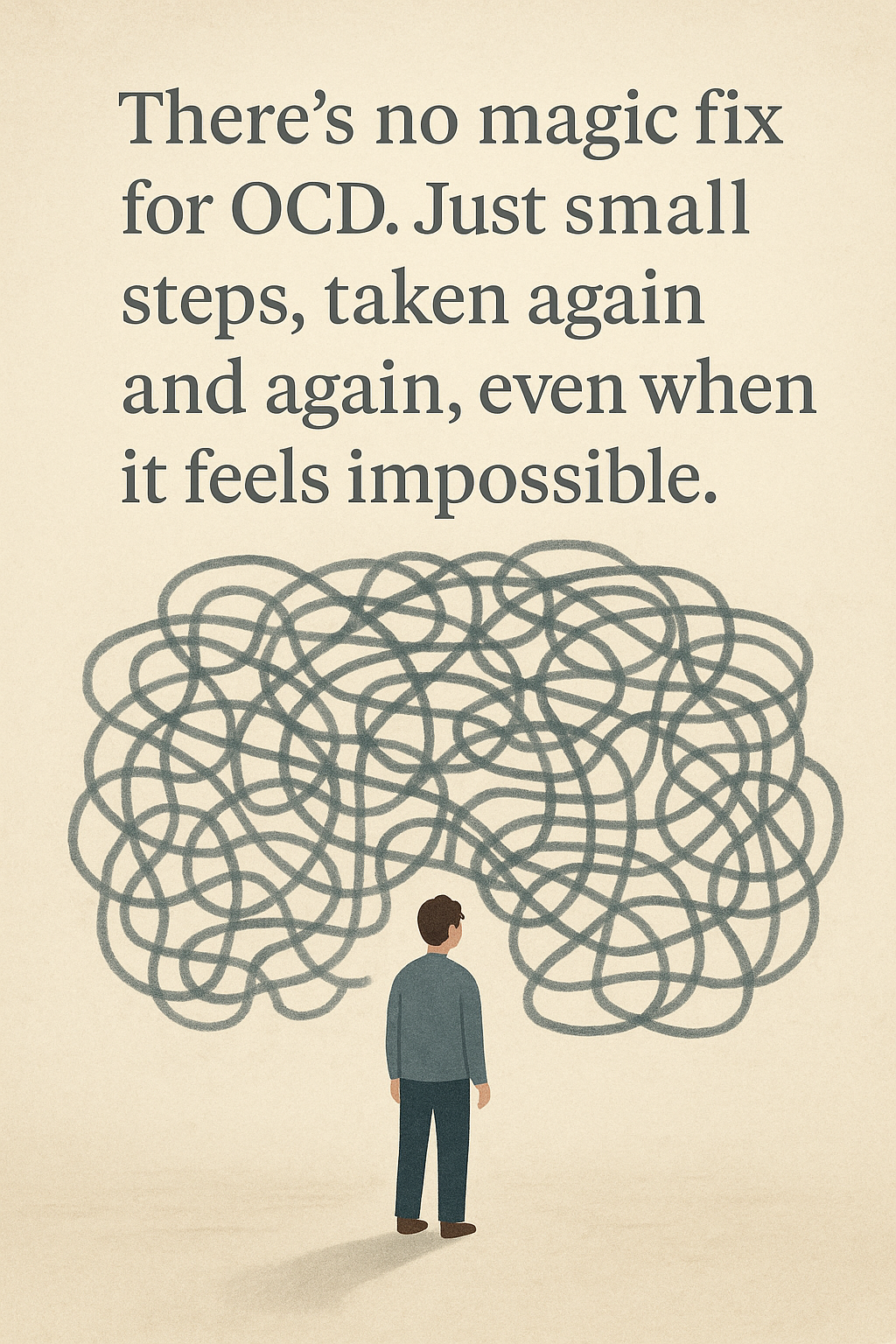Medication Can Help — But It Isn’t the Whole Picture
When it comes to OCD recovery, you need to show up, put in the work, and stick with it. Medication can be supportive, but it won’t do the work for you.
From my personal experience, both as someone living with OCD and as a therapist, I’ve had moments where I truly believed the right medication would be a cure-all. I thought that if I just found the perfect pill, my OCD and anxiety would vanish, and everything would be fine. Over the years, I’ve realised many others share that same hope, trying different medications in search of the “magic pill” that will take it all away.
OCD Recovery: getting to the root causes
But we must face the truth: while medication can offer relief, it doesn’t solve the underlying problem. At best, it can ease symptoms, but it doesn’t get to the root of what’s really happening. And let’s be honest, most of us don’t want to rely on medication for the rest of our lives.
If you truly want to live a happy, fulfilling life with OCD, and not be controlled by it, you must dig deeper. This means facing your core fears, challenging the beliefs that fuel your anxiety, and understanding what’s going on with clarity, logic, and self-compassion. That’s where real change begins.
I want to be clear: I’m not against medication. For many, it can be a helpful part of the journey. But the key is working with it, not depending on it alone.
OCD Recovery: Why It Takes Many Steps
OCD recovery isn’t a quick fix, it’s a journey that requires multiple steps, like piecing together a puzzle. Each step plays a vital role in the bigger picture. One important mindset to adopt is the “checkbox” approach: which I explain in my Free PDF. Recognise that OCD can manifest in different ways for different people. The way you react to it, your specific triggers, and even your unique themes, it’s all deeply personal.
While everyone’s experience is different, the core elements of recovery often remain the same. The solution doesn’t come in a pill, but from within you.
OCD Recovery: First Steps
The first step is understanding yourself and identifying your core fear. You might even be able to trace when OCD first latched onto something distressing in your life. It could stem from a traumatic event, a stressful period, or even a major life change, like having a child or getting a promotion.
In future posts, I’ll explore how even happiness can trigger fear, and how feeling ‘too good’ can leave us anxious, questioning if it’s too good to be true.
There are many steps involved in recovery, and I highlight them here PDF ‘OCD checkbox’. With the right knowledge, you have the power to overcome OCD. You can say no to the intrusive thoughts, stop believing them, and live a normal life. Medication can be a helpful part of the solution, but it’s just one piece of the puzzle. You also must do the work: face your fears, challenge the thoughts, and take action to move beyond the trap.

OCD recovery, Summary
OCD recovery is a multi-step journey that requires active participation, self-awareness, and a willingness to face your fears. While medication can provide some relief, it isn’t a cure and doesn’t address the root causes of OCD. True recovery comes from within, through understanding the core fears, challenging the beliefs that fuel anxiety, and taking deliberate action. It’s a process that involves both the mind and the body, and while it may take time, with the right tools and mindset, you can regain control and lead a fulfilling life.
Leave a Reply